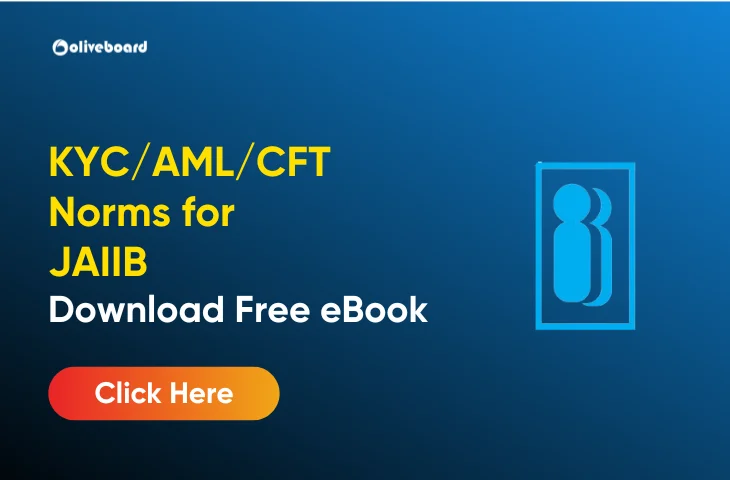KYC AML CFT Norms for JAIIB Exam
The banking sector in India is constantly evolving to combat money laundering, financial fraud, and terrorism financing. To ensure that banking professionals uphold the highest standards of integrity and security, a comprehensive understanding of KYC AML CFT norms is important, especially for those preparing for the JAIIB 2024 exam. In this article, we will explore the essentials of KYC AML CFT norms and provide guidance on how JAIIB candidates can familiarize themselves with these regulations.
KYC AML CFT Norms
Before diving into the specifics, it is important to understand what KYC (Know Your Customer), AML (Anti-Money Laundering), and CFT (Countering the Financing of Terrorism) represent:
- KYC (Know Your Customer): Refers to the process of a bank verifying the identity of its clients to ensure they are not involved in financial crimes.
- AML (Anti-Money Laundering): Regulations designed to prevent, detect, and report any attempts to engage in money laundering activities.
- CFT (Countering the Financing of Terrorism): A set of policies aimed at stopping the flow of funds to terrorist organizations or activities.
Together, these frameworks protect the financial system from illicit activities and contribute to the overall integrity of banking operations.
Importance of KYC AML CFT in JAIIB 2024
For students preparing for the JAIIB 2024 exam, understanding KYC AML CFT norms is not just important for exam success but is also essential for becoming a responsible banking professional. These norms have become a core part of the banking industry, with banks being legally obligated to comply with them.
Objectives of KYC AML CFT
The primary objective of KYC, AML, and CFT norms is to prevent financial crimes by ensuring the identity of customers and monitoring suspicious transactions. These regulations help maintain the integrity of the financial system and protect it from misuse for illegal activities.
- Prevent financial crimes: Safeguard the banking system against fraud, money laundering, and terrorism financing.
- Ensure compliance: Banks must follow regulatory guidelines to avoid legal penalties.
- Promote transparency: Help authorities trace illicit funds and uncover suspicious activities.
KYC Norms
KYC procedures involve verifying the identity of customers and assessing their risk profiles. The JAIIB 2024 exam will cover the following KYC guidelines:
1. Customer Identification Process (CIP):
- Banks must obtain sufficient details about the customer’s identity, including full name, address, date of birth, nationality, etc.
- This helps prevent identity theft and ensures that only legitimate individuals have access to banking services.
2. Risk-Based Approach:
- Banks categorize customers as low, medium, or high risk based on various factors like their transaction history and nature of business.
- High-risk customers are subject to enhanced scrutiny, including more frequent account monitoring.
3. Periodic Updates:
- KYC information must be updated at regular intervals, particularly for high-risk customers, to keep records current.
AML and CFT Guidelines for JAIIB 2024
Both AML and CFT policies aim to detect and prevent the illegal use of the banking system. Understanding the key elements of these guidelines is essential for JAIIB candidates.
AML Norms:
AML measures require banks to monitor and report suspicious activities, ensuring that illegal funds do not enter or exit the financial system.
- Suspicious Transaction Reports (STRs): Banks must file reports when suspicious activities are detected, even if a transaction is incomplete.
- Cash Transaction Reports (CTRs): Large or unusual cash transactions, especially those above a certain threshold, must be reported to the Financial Intelligence Unit (FIU).
CFT Norms:
CFT measures focus on identifying transactions that might fund terrorism.
- Cross-Border Wire Transfers (CWTRs): Transactions exceeding ₹5 lakh or its equivalent in foreign currency must be reported when either the origin or destination is in India.
- Non-Profit Organizations: Transactions involving amounts greater than ₹10 lakh in non-profit organizations must also be reported.
Important Reporting Mechanisms for Banks
Banks and Financial Institutions (FIs) must adhere to specific reporting guidelines to ensure compliance with KYC AML CFT norms.
| Report Type | Description | Deadline |
| Cash Transaction Report (CTR) | Reports on large cash transactions | By 15th of the succeeding month |
| Suspicious Transaction Report (STR) | Reports on transactions involving suspected financial crimes | Within 7 days of detection |
| Non-Profit Organization Transactions | Reports on large transactions by non-profit organizations | By 15th of the succeeding month |
| Cross-Border Wire Transfers (CWTR) | Reports on cross-border wire transfers over ₹5 lakh | By 15th of the succeeding month |
These reports are critical for maintaining the integrity of the banking sector and must be filed by the designated officers in a timely and accurate manner.
AML KYC – Complete Course
The AML KYC Complete Course offers over 30 live, interactive sessions that thoroughly cover the entire KYC AML syllabus, following the latest exam pattern. It includes 150+ multiple-choice questions (MCQs) and case studies to help you focus on key topics. You will also get downloadable PDF notes for easy learning and quick revision. The course provides a combination of live classes, recorded lectures, and PDF notes. For your convenience, live sessions are held during non-banking hours, either early in the morning or late in the evening. Additionally, you can access recorded lectures and PDF notes 24/7, allowing you to learn anytime and anywhere. Click the link below to check all the details regarding the AML KYC course.
Steps for Banks/FIs to Follow
- Training of Employees:
- Banks must provide ongoing training for staff to ensure they are well-versed in KYC AM CFT norms. This is vital for recognizing suspicious transactions and preventing illicit activity.
- Effective Use of Technology:
- A robust software system capable of flagging suspicious transactions is crucial. Automated systems help banks efficiently monitor transactions and generate alerts.
- Employee Screening:
- Banks must ensure that their employees undergo thorough background checks to prevent the hiring of individuals with a criminal history.
- Maintain Confidentiality:
- The confidentiality of customer information must be maintained, and employees should not share sensitive data for any non-business purpose.
Challenges in Implementing KYC AML CFT Norms
While KYC AML CFT norms are important, banks face several challenges in implementing them effectively:
- Customer Resistance: Some customers may feel that KYC procedures are intrusive, leading to dissatisfaction.
- Technological Constraints: Smaller banks or financial institutions may lack the technological infrastructure needed to monitor and report suspicious activities efficiently.
- Compliance Costs: Adhering to KYC AML CFT norms can be resource-intensive, particularly for smaller institutions.
Take A Sneak Peek At the KYC AML CFT Norms eBook for JAIIB

Download the KYC AML CFT Norms Free eBook for JAIIB
Download KYC/AML/CFT Norms Free E-book
How to Download KYC AML CFT Norms Free eBook for JAIIB?
Step 1: Click on the download link. You will be redirected to Oliveboard’s FREE E-Books Page.

Step 2: Create a free Oliveboard account or login using your existing Oliveboard account details
Step 3: Download the book by clicking on the link presented on the page.
Also Check,
| Related Article | Links |
| KYC and AML | Click here to Check |
| KYC Full Form | Click here to Check |
| AML KYC Certification | Click here to Check |
Conclusion
For those preparing for JAIIB 2024, understanding KYC AML CFT norms is essential for success in the banking profession. These norms ensure that banking professionals contribute to a secure, transparent, and efficient financial system. By grasping the KYC AML CFT concepts and guidelines, JAIIB candidates will be better equipped to handle customer accounts, detect suspicious transactions, and comply with regulatory requirements, all of which are crucial for a successful career in banking.
KYC AML CFT Norms – FAQs
Ans. KYC AML CFT norms are crucial for the JAIIB exam as they ensure candidates understand the regulations designed to prevent financial crimes in banking.
Ans. Understanding KYC AML CFT norms helps JAIIB aspirants grasp key concepts related to compliance and regulatory practices in the banking sector.
Ans. KYC AML CFT norms are fundamental in the banking sector, and JAIIB aspirants must understand them to ensure compliance with legal and regulatory requirements.
Ans. Yes, KYC AML CFT norms are integral to the JAIIB syllabus, focusing on compliance and risk management in the banking industry.
Ans. Knowledge of KYC AML CFT norms is essential for JAIIB candidates as it prepares them for managing risks and ensuring compliance within the banking sector.
- Legislation Against Money Laundering, AML KYC Certification

- IIBF AML KYC Exam Date 2025, Check Schedule
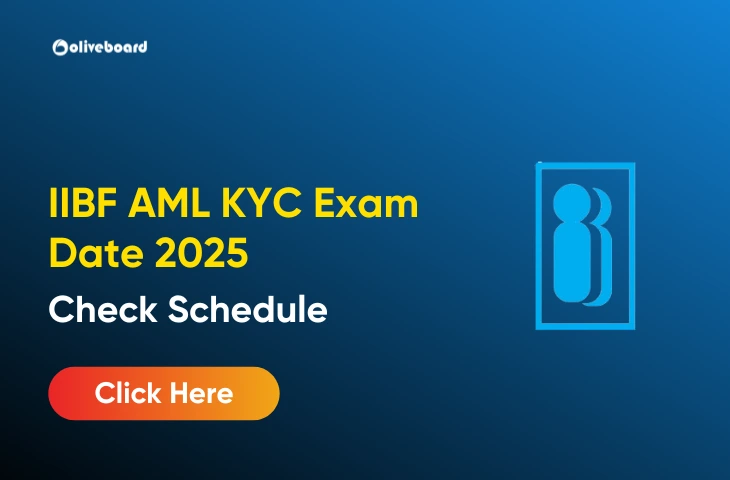
- IIBF AML KYC Certification, Check Complete Details and Benefits
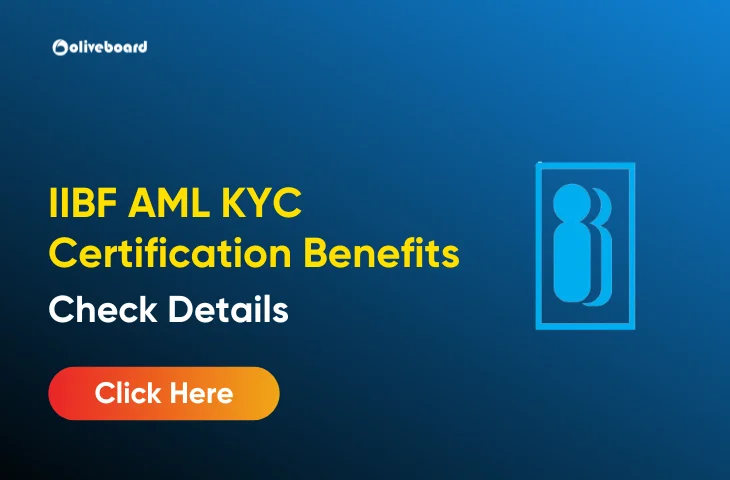
- IIBF AML KYC Syllabus 2025, Check Exam Pattern
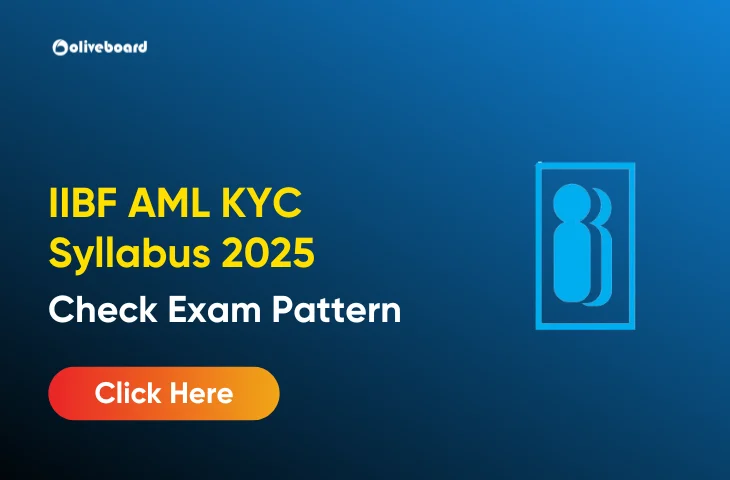
- Basel Committee, AML KYC Certification Course
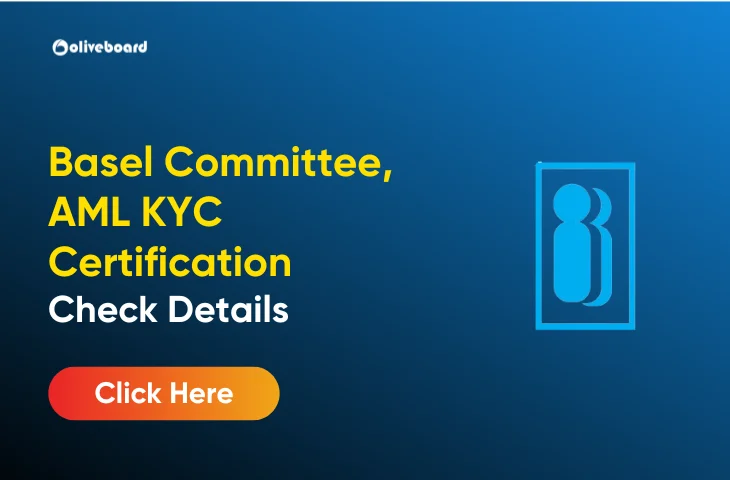
- International Cooperation of Money Laundering, KYC AML


Hello there! I’m a dedicated Government Job aspirant turned passionate writer & content marketer. My blogs are a one-stop destination for accurate and comprehensive information on exams like Regulatory Bodies, Banking, SSC, State PSCs, and more. I’m on a mission to provide you with all the details you need, conveniently in one place. When I’m not writing and marketing, you’ll find me happily experimenting in the kitchen, cooking up delightful treats. Join me on this journey of knowledge and flavors!
